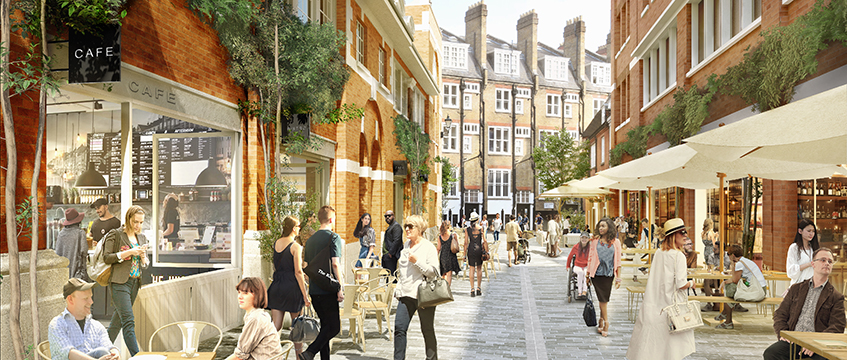Grosvenor has called for a national retrofit strategy to guide real estate owners and occupiers with retrofitting projects.
The landlord, which has retrofitted more than 1m sq ft across its London estate, said such an initiative should bring together planning support, skills, funding and advice to address barriers to retrofitting.
Recommended measures include a focus on incentives and financing options to encourage retrofitting, such as the equalisation of VAT with new-builds. The company also wants an assessment of the Apprenticeship Levy and locally led skills plans, and progress on unlocking unspent funds to develop retrofit skills.
Ed Green, sustainability director at Grosvenor Property, said: “Long-term political commitment is the key to unlocking the barriers to retrofit.
“The scale of the challenge is such that without a concerted national approach driven by government, the country will fail to benefit from the broad range of socio-economic benefits it would derive from decarbonising the built environment.”
He added: “Our research shows that improving the energy efficiency of historic properties alone could reduce operational carbon emissions from the UK’s buildings by circa 5% per year and generate £35bn of output in the economy.
“The state has the unique ability to create the conditions that would give businesses the confidence to invest and encourage people to retrofit their homes. A national approach, backed with appropriate levels of investment and political ambition, is the crucial missing piece.”
As part of its wider business strategy, Grosvenor has committed to prioritise retrofits where possible. It says a further 250,000 sq ft of space will be retrofitted in 2024 in support of the estate’s net zero carbon goal and focus on deep retrofits. It will also refurbish 14 listed buildings as part of its South Molton development in Mayfair, W1.
Green added: “Simple cost-effective changes can significantly reduce energy demand and improve a building’s sustainability. Acting now to make straightforward low-cost changes is a more effective approach than postponing activity until a full building refurbishment may be possible.”
Grosvenor launched its own £90m retrofit programme in 2020, which has so far seen the refurbishment of more than 360 offices, shops and homes to optimise energy efficiency. This included changes that could be made with occupiers in situ, such as converting lightbulbs to LEDs, installing double-glazed windows and insulation.
Other interventions have included the replacement 55 boilers with fossil fuel-free alternatives, which has helped to reduce gas usage by 40% since its carbon baseline was established in 2019. Investments in energy efficiency and low-carbon development such as these have helped to lower the UK property business’ carbon emissions by 32% between 2019 and 2022.
Grosvenor has also committed to reducing emissions from its buildings, developments and supply chain by 90%, by 2040.
Send feedback to Chanté Bohitige
Follow Estates Gazette











